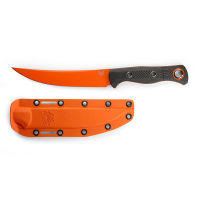
Caring for chickens in the winter is pretty similar to caring for them during any other season: It doesn't have to be that difficult. With just a handful of modifications to their enclosure, your chickens can be perfectly happy and comfortable in the winter months. Here are the most important projects to consider.
In the Coop One of the most popular myths with caring for chickens in the winter is that they need supplemental heat. The truth is, they don’t. If you focus on modifying the coop correctly, your chickens will be totally fine without a heat lamp, which can quickly become a fire hazard.
Adding insulation to your coop is an effective way to retain heat. There are many options for insulation and some are more costly than others. In my opinion, using foam boards or reflective bubble insulation are great cost-effective options. Shockingly enough, insulation is also an optional modification. You can choose to not insulate your coop if there are enough chickens present to create sufficient body heat.
Bedding is another important factor when modifying your chicken coop for winter, and it’s especially important if you choose to not insulate your coop. The two most popular options for bedding are pine shavings and straw. The best way to retain warmth is to use both. Add a generous base layer of straw and then top it off with pine shavings.
Build up the bedding instead of cleaning it out each time. This method, known as “deep bedding,” is effective for the winter because more heat is created as old bedding starts to decompose with chicken poop. This might sound a little gross, but don’t worry about your eggs—they’ll keep themselves clean. As long as you add fresh bedding regularly, the ammonia and humidity levels won't increase. You can also make compost with all the bedding come spring.
Ventilation is key for healthy chickens. While you don’t want your coop to be too drafty, keeping a window or door open will help the atmosphere stay dry and clean. Without ventilation, the humidity and ammonia levels can increase, potentially leading to respiratory problems for your chickens. It will also make for a tougher transition when they go outside into the cold if they have been in a humid environment for long periods of time.
We’ve already talked about this a lot, but your coop must have roosts. These perches are where your chickens sleep and cuddle together to stay warm. Wood roosts are better than metal—who wants to sleep on cold metal during the winter?
While your chickens can range outside during the winter, it's nice to have a snow-free run. They probably won't enjoy walking on snow, so giving them a nice, dry area to walk in can help with their overall comfort.
Food and Water Chickens still need access to fresh, liquid water during the winter, but this can be tricky in colder regions. My favorite solution for this issue is a heated water dish. Heated dog bowls are best because they’re affordable and hold the perfect amount of water. You can use an extension cord if your coop doesn't have power.
Since your chickens will not be able to forage during the winter, their food intake will increase. Make sure to have food available to them at all times. As they eat and digest, their body temperature will rise and they will stay warm. If your chickens are foraging in the winter and snow is covering the ground, they probably won’t come in contact with gravel or rocks. Provide them with some grit to aid in digestion.
Eggs Chickens still lay eggs in the winter but they lay fewer of them. Usually, chickens need about 12 to 16 hours of sunlight to be on a consistent laying schedule. In the winter when the sunlight decreases to less than eight hours a day, the chickens’ capacity to lay will slow down too. Be patient. You can offer supplemental light if you really want to, but when nature takes a break, maybe you and your animals should as well.
Other Factors to Consider Frostbite is absolutely a possibility for chickens. Usually, breeds with larger combs are more susceptible to frostbite. If you are worried about this with your chickens, you can apply petroleum jelly to their combs to ward off the freeze.
If you live in a super cold climate, consider getting a heritage chicken breed. Heritage breeds are far more cold hardy and were bred to be outside year-round. Some good breeds include Plymouth Rock, Ameraucana, Rhode Island Red, Australorps, Wyandotte, Speckled Sussex, and Orpingtons.
Finally, when it comes to quantity, the more the merrier. If you only have one chicken, chances are it won't be able to keep its body temperature high enough to stay comfortable. But if you have five or six chickens in a coop, they will be able to roost together and keep each other much warmer. If you’ve been hankering to grow your flock, use this as your excuse to buy a few more.






